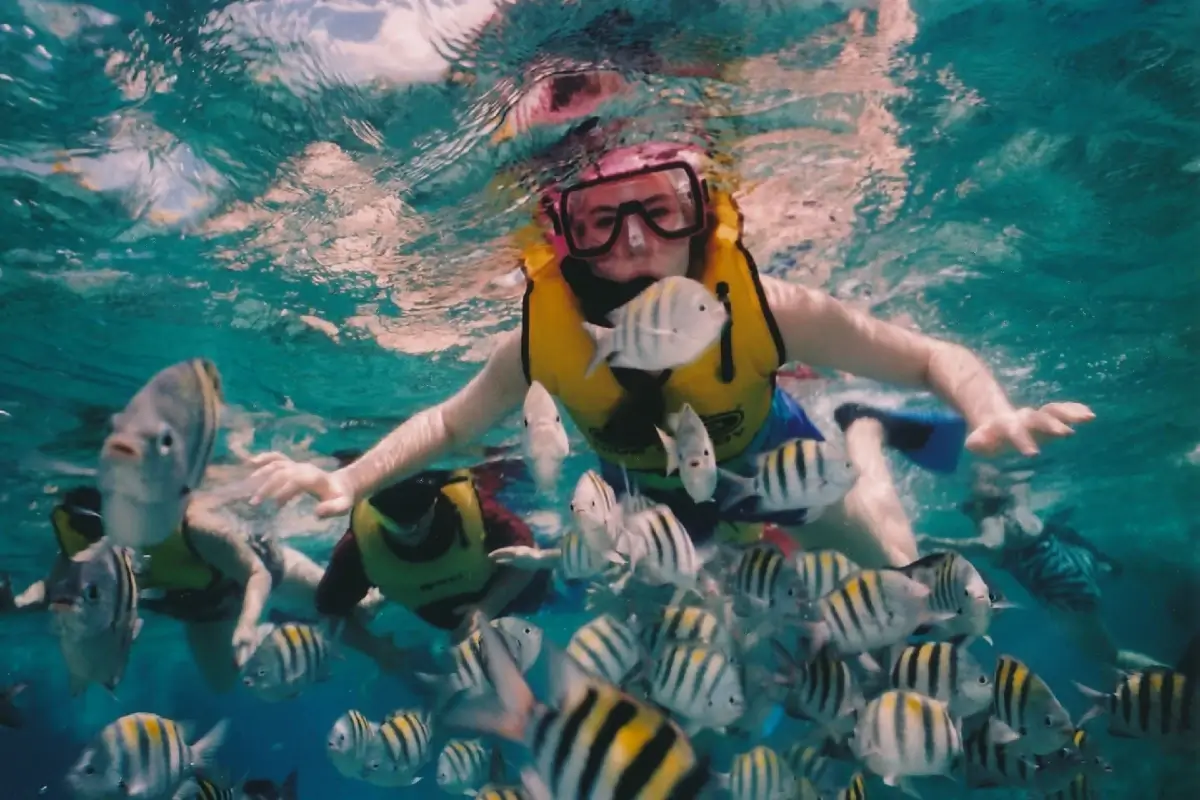Snorkeling is a popular activity that allows individuals to observe marine life and coral reefs from the surface of the water. While it may seem like a simple and straightforward activity, there are several reasons why training is essential for a safe and enjoyable snorkeling experience.
In this article, we will get into the basics of snorkeling, the importance of training, the necessary equipment, top snorkeling destinations, techniques for mastering snorkeling skills, and more.
Why Training is Essential for Snorkeling

While snorkeling may seem like a relatively safe activity, it is not without its risks. Training is essential to ensure the safety of both beginners and experienced snorkelers. Here are some reasons why training is important:
- Understanding Safety Precautions: Training provides individuals with the knowledge and understanding of safety precautions while snorkeling. This includes learning about potential hazards, such as strong currents, marine life encounters, and how to handle emergency situations.
- Proper Breathing Techniques: Snorkeling requires proper breathing techniques to ensure a continuous supply of air. Training helps individuals learn how to use the snorkel effectively and breathe through it without inhaling water.
- Managing Equipment: Learning how to use and manage snorkeling equipment is critical. Training sessions teach individuals how to properly wear and adjust the mask, snorkel, and fins for a comfortable and secure fit.
- Increasing Confidence: Training boosts confidence in the water. It allows individuals to practice essential skills and techniques, making them more comfortable and confident while exploring the underwater world.
By undergoing training, individuals can enjoy a safer and more enjoyable snorkeling experience, minimizing the risks associated with the activity.
Snorkeling Must-Have Equipment for Beginners
Before venturing into the water, it is essential to have the right snorkeling gear. Here are the must-have equipment for beginners:
| Snorkel | Mask | Fins | Rash Guard | Sunscreen |
|---|---|---|---|---|
| A breathing tube that allows you to breathe while your face is submerged. | A mask that provides a clear view underwater and prevents water from entering. | Fins that help you swim more efficiently and navigate through the water. | A lightweight, quick-drying shirt that protects your skin from the sun and potential irritants.(learn more) | A waterproof sunscreen with a high SPF to protect your skin from harmful UV rays. |
Investing in high-quality gear ensures comfort, durability, and improved performance while snorkeling. It is recommended to consult with professionals or instructors to choose the right gear suitable for your skill level and snorkeling conditions.
Top Destinations for Snorkeling
Choosing the right location can enhance the overall snorkeling experience. Here are some top destinations:
- The Great Barrier Reef, Australia: Known as one of the world’s most iconic snorkeling destinations, the Great Barrier Reef offers an incredible snorkel experience with diversity of marine life and vibrant coral reefs.
- Hawaii, United States: With its crystal-clear waters and abundant marine life, Hawaii is a paradise for snorkelers. Explore the colorful fish and sea turtles in Hanauma Bay or Molokini Crater.
- Palawan, Philippines: Palawan’s stunning landscapes extend underwater, offering an abundance of marine biodiversity. Snorkelers can enjoy exploring coral gardens and encountering tropical fish.
- Maldives: The Maldives is famous for its turquoise waters, white sandy beaches, and incredible marine life. Snorkelers can discover coral reefs, manta rays, and even whale sharks.
- Galapagos Islands, Ecuador: The Galapagos Islands offer a unique snorkeling experience with encounters with sea lions, marine iguanas, and various species of sharks.
Research and choose a location that suits your snorkeling skills and interests. Each destination offers its own unique marine ecosystem and attractions.
Mastering Snorkeling Skills
Mastering snorkeling skills takes practice and experience. Here are some tips and techniques to improve your snorkeling abilities:
- Practice Proper Floating and Breathing: Before snorkeling in open water, practice floating and breathing with your gear in a swimming pool or calm area. Focus on maintaining a relaxed and horizontal position while breathing through the snorkel.
- Clearing Your Mask: Learn how to clear your mask in case water enters. Tilt your head backward, slightly lift the bottom of the mask, and exhale through your nose to remove the water.
- Equalizing Your Ears: If you plan on diving slightly below the water’s surface, learn how to equalize your ears to avoid discomfort or potential injuries. Pinch your nose and blow gently to equalize the pressure.
- Swim Slowly and Calmly: Avoid rapid movements and splashing, as this may disturb marine life and reduce visibility. Swim slowly and calmly to observe and appreciate the underwater environment.
- Stay Hydrated and Rested: Snorkeling can be physically demanding. Stay hydrated, well-rested, and listen to your body. Take breaks when needed to ensure an enjoyable and safe experience.
Joining Snorkeling Tours and Expeditions
If you want to take your snorkeling experience to the next level, consider joining snorkeling tours and expeditions. These organized trips are led by experienced guides who provide expert knowledge and ensure your safety.
Here are some benefits of joining snorkeling tours and expeditions:
- Access to exclusive snorkeling spots and hidden gems.
- Guidance from experienced snorkelers and marine biologists.
- Opportunity to learn about marine ecosystems and conservation efforts.
- Interaction with like-minded individuals who share your passion for snorkeling.
- Convenience of having logistics and equipment taken care of.
Final Thoughts
While it may seem simple, snorkeling requires training for a safe and enjoyable experience. By investing in training, you can enhance your skills, increase your confidence in the water, and minimize the risks associated with snorkeling.
Always prioritize safety, choose the right gear, and explore destinations that align with your interests and skill level.
